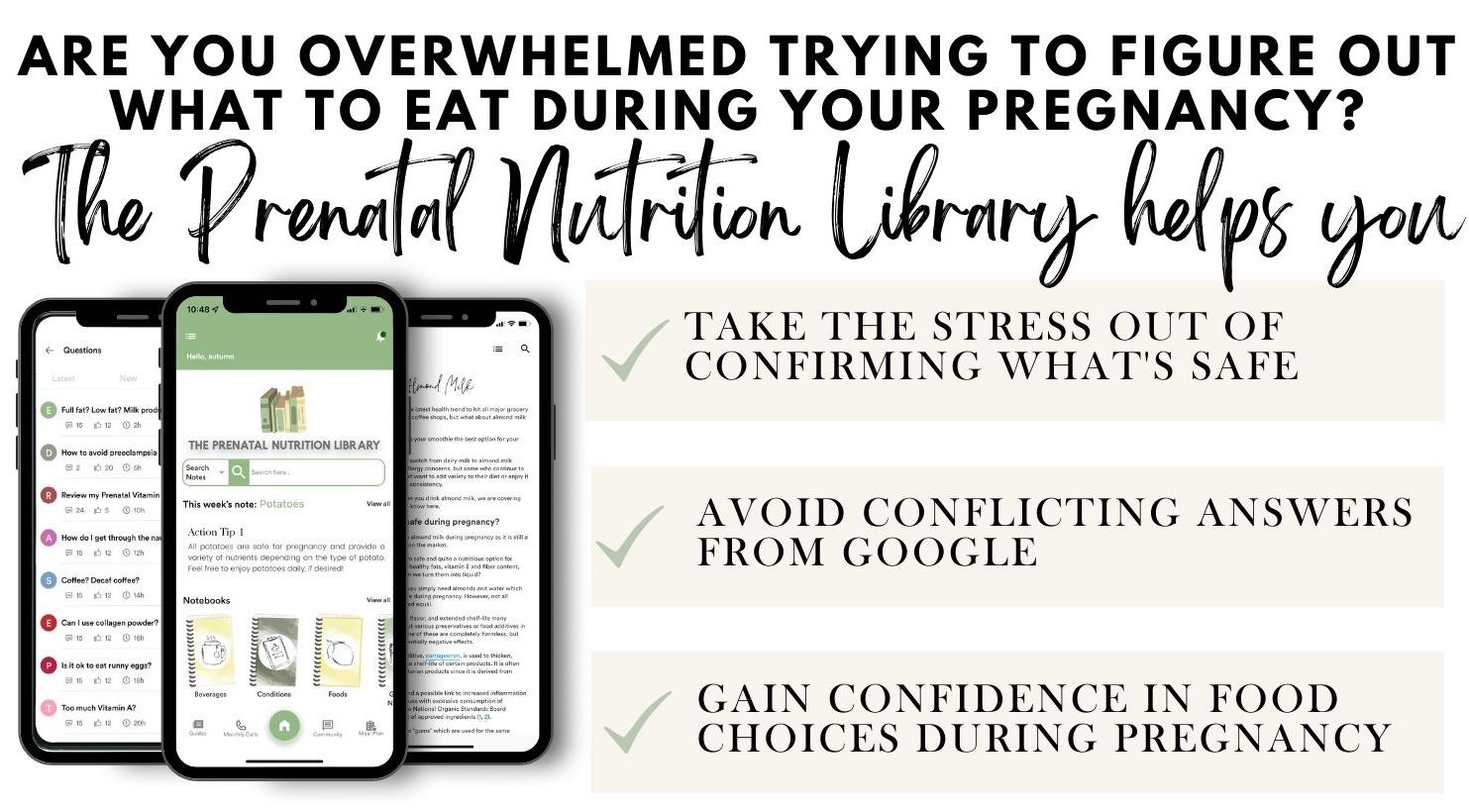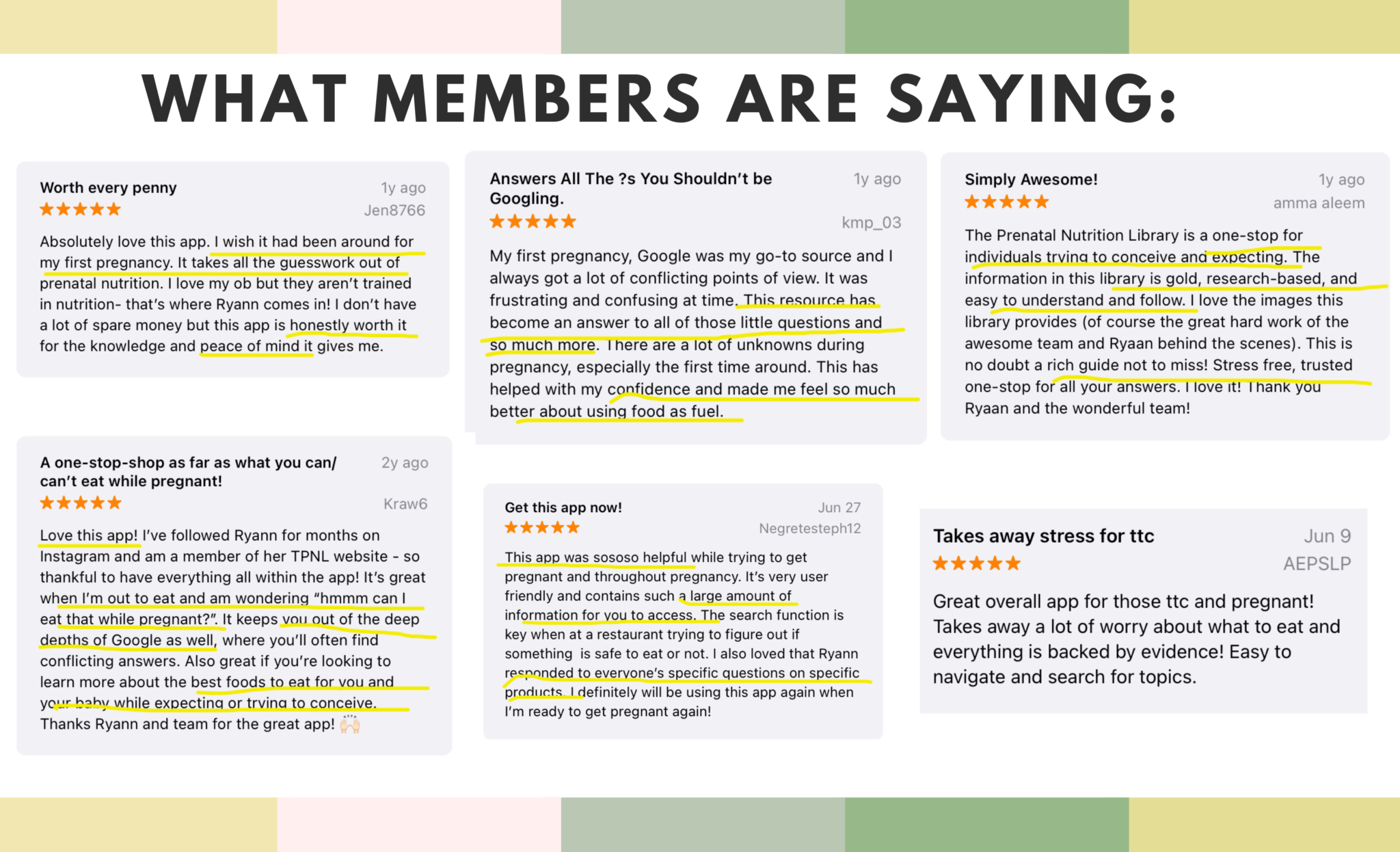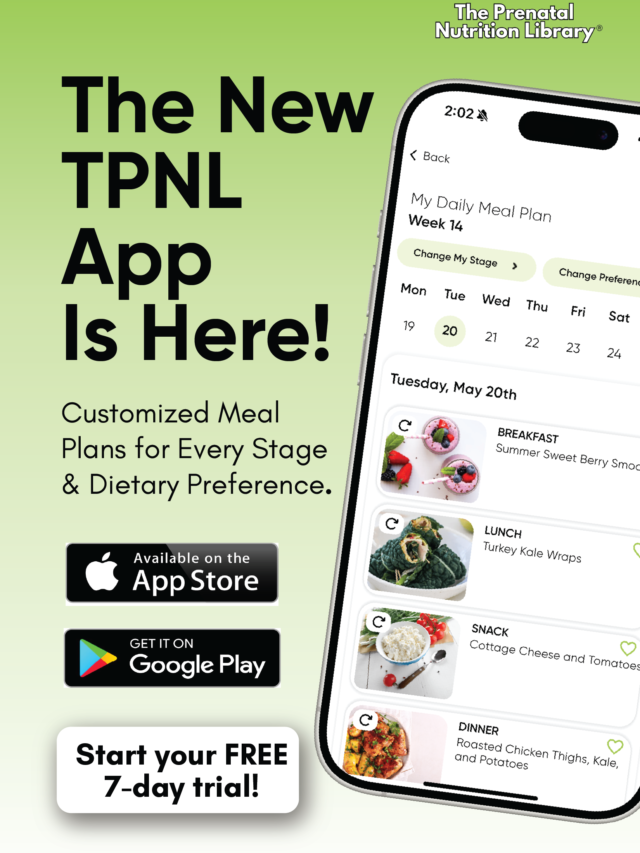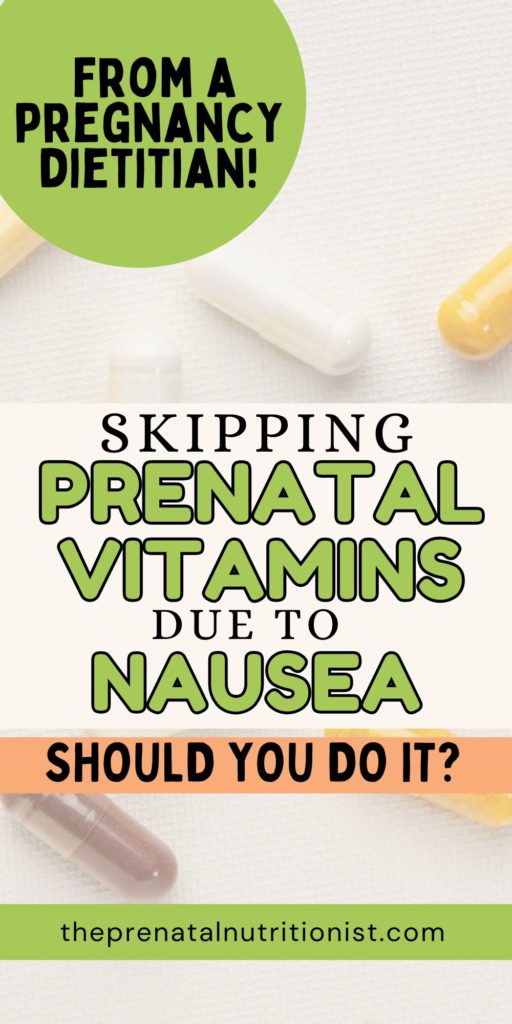
Choosing a quality and well-rounded prenatal vitamin helps to support a healthy pregnancy. Food is the focus first, but prenatal vitamins are a source of several essential nutrients that support the mother and the developing baby. They also help to fill in any nutritional gaps and ensure that you’re both getting the vitamins and minerals you need during pregnancy, including those that support healthy birth weight and the development of the brain and spinal cordand may even help ease nausea—such as vitamin B6.
It isn’t uncommon for pregnant women to experience symptoms of nausea and vomiting during pregnancy. Unfortunately, the smell or swallowing of prenatal vitamins can be a trigger of nausea for some. When this happens, it can make it super challenging to take these supplements.
If you’ve been struggling with nausea that is triggered or worsened by taking your prenatal vitamins, this post is for you! We will explore this topic and offer some helpful management strategies.
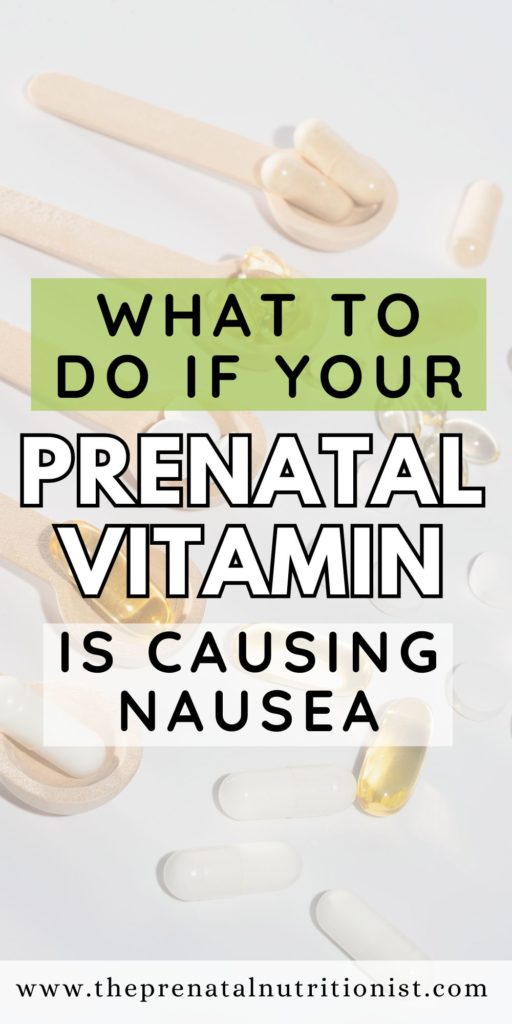
Skipping Prenatal Vitamins Due To Nausea: Should You Do It?
If your prenatal vitamin makes you feel nauseous, skipping it can sometimes feel inevitable. After all, who wants to take something that makes them feel worse? For this reason, it isn’t uncommon to miss daily doses or feel stressed about having to take prenatal vitamins during pregnancy.
You might be wondering why taking a prenatal vitamin is doing this. Sometimes, it’s the form or specific nutrients in the prenatal vitamins. For example, iron can be a culprit in causing nausea.
Other times, it may just be the smell or specific brand that triggers morning sickness symptoms when taking the prenatal vitamin. Sadly, no matter what the cause, it can make even the idea of swallowing a pill seem unbearable. So, if this is the case, is it okay to skip taking your prenatal vitamin? Will you miss the nutrients you need to support a healthy pregnancy?
Is It OK To Skip Prenatal Vitamins?
While missing a dose of your prenatal vitamin once or twice isn’t a huge concern, it’s ideal to minimize these gaps as much as possible. Missing a few days throughout your entire pregnancy due to nausea, forgetting, or some other reason is unlikely to have an impact on your pregnancy, but consistently skipping them can mean that you and your baby are missing out on nutrients that are important for a healthy pregnancy. This is especially true if you’re battling food aversions and morning sickness in the first trimester and aren’t able to eat a wide variety of nutrient-rich foods either.

What Happens If You Skip Prenatal Vitamins?
Increased Risk of Nutrient Deficiencies
As mentioned, prenatal vitamins help to fill the gaps in your diet and prevent nutrient deficiencies. Continuously skipping your prenatal vitamins alongside a limited diet due to nausea and aversions could contribute to deficiencies or low levels of key nutrients such as iron, folate, choline, and calcium.
These nutrients are important to prevent conditions like neural tube defects and anemia and support the baby’s overall growth and development. Correcting and preventing nutrient deficiencies is key because they can impact maternal and fetal health.
Increased Risk of Complications
Our nutrient needs are heightened during pregnancy due to the demands of growing a baby and supporting increased blood volume. While no prenatal vitamin has all the nutrients you need and in all the right amounts, it does help to supplement your diet and prevent nutrient deficiencies and can reduce the risk of a birth defect. If nutrient deficiencies do occur, this may heighten the risk of pregnancy complications such as gestational diabetes, preterm birth, and preeclampsia.
Missing Nutrients Important for Baby’s Development
Essential nutrients included in prenatal vitamins or supplements, such as DHA, choline, and calcium, play a critical role in the development of your baby’s brain, bones, and eyes. Again, we can get these nutrients through foods, but sometimes, meeting the need for every nutrient through diet can be challenging, especially if you’re already battling nausea.
Increased Risk of Neural Tube Defects
Folate is an important nutrient throughout pregnancy, especially in the first trimester. It is a key nutrient in the prevention of neural tube defects. While it’s possible to get enough folate through foods, most people aren’t getting enough. Folate is a major component and focus of prenatal vitamins for these reasons.
Delayed Postpartum Recovery
Regularly skipping prenatal vitamins throughout pregnancy may also impact postpartum recovery. We use up a great deal of our nutrient stores during pregnancy and can end up in a depleted state by the end of pregnancy. However, we need plenty of nutrients to recover and heal postpartum, too. Essential nutrients from your prenatal vitamins help to set you up for better nutrient stores headed into the postpartum phase.
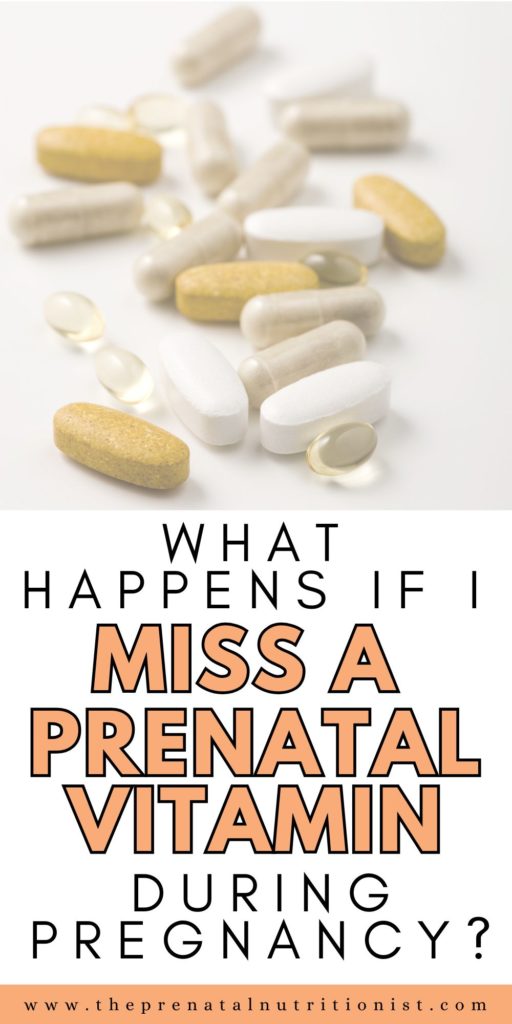
What To Do When Prenatal Vitamins Cause Nausea:
Change the time you take vitamins.
Taking your prenatal vitamins at a different time of the day may help with nausea. Some people find that taking them in the afternoon or before bed reduces the chances of them feeling sick, compared to taking them in the morning. If your prenatal vitamin has multiple capsules in the daily dose, it’s best to split this up in divided doses throughout the day.
Change the brand of vitamins.
A different brand of prenatal vitamins may work better for you. I’m often asked if it’s okay to switch prenatal vitamin brands— the answer is yes. It’s absolutely okay to switch to a different brand at any time during pregnancy.
Eat small, frequent meals.
Eating small, frequent meals throughout the day may help curb nausea and make it easier to tolerate your prenatal vitamins. Consuming small amounts of food regularly can also help stabilize your blood sugar levels and prevent your stomach from becoming upset is a good practice with prenatal supplements. If you can, try to include some protein in these meals, which can further help with nausea prevention and support blood sugar balance.
Add ginger to your meals.
Ginger is well-known for its anti-nausea properties and may be a great remedy to reduce symptoms of morning sickness during pregnancy. Adding ginger to your meals or drinking it in tea might help reduce nausea and therefore make it easier to take your prenatal vitamins.
Take your vitamins with food.
Taking prenatal vitamins with a meal may help mitigate nausea better than taking them on an empty stomach. Food can help buffer stomach acid and reduce an upset stomach that can happen when certain nutrients, like iron, are taken on an empty stomach.
Try different forms of prenatal vitamins.
Prenatal vitamins come in different forms besides capsules. You could also opt for trying a different form, like gummies, powders, or liquid vitamins, which may be better tolerated by some.
Do you need help choosing the best prenatal vitamin for your pregnancy?
If you’re wondering what to look for when choosing a prenatal vitamin, I have the perfect comprehensive guide for you. There’s no one best prenatal vitamin for everyone, but there is a best prenatal vitamin for you. Inside our prenatal vitamin guide, we review information on what to look for, what to avoid, and the pros and cons of specific brands to help you decide the best one for you and your pregnancy.
To grab this guide and hundreds of pregnancy nutrition resources, sign up for The Prenatal Nutrition Library app. Inside the app, you can easily search topics, foods, and nutrients for a quick, evidence-based answer. We even have trimester-specific meal plans. If you want to test the waters first, check out our FREE 1-week meal plan for pregnancy.



